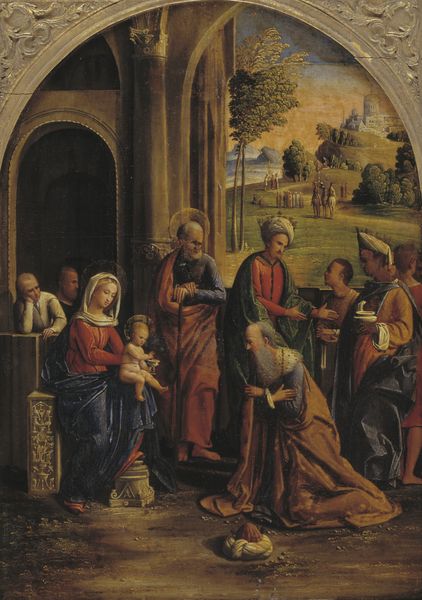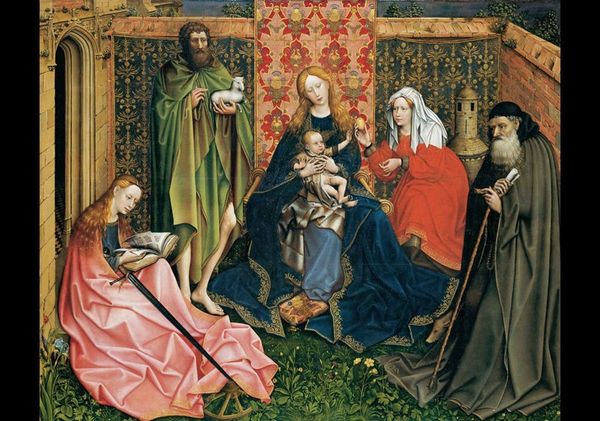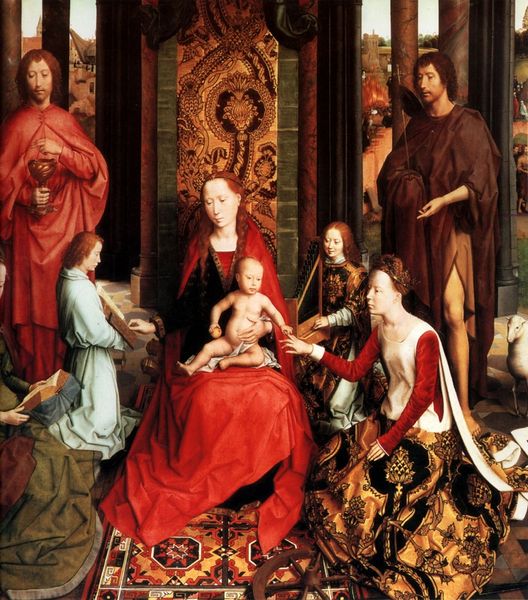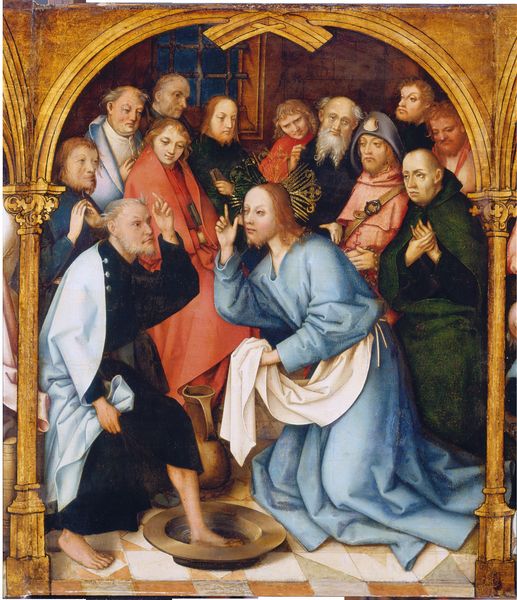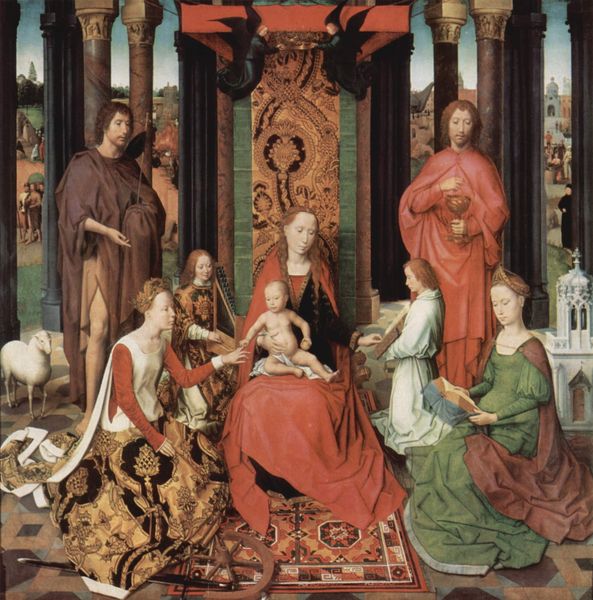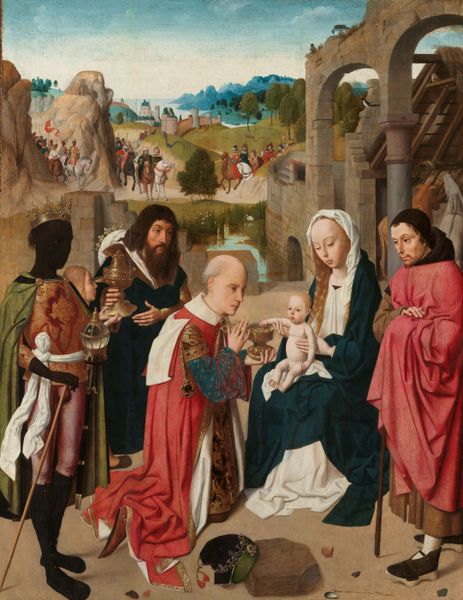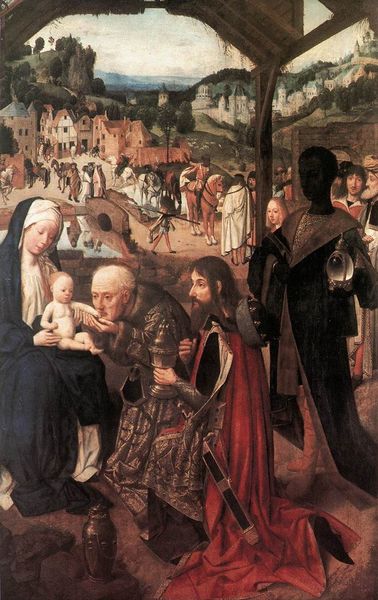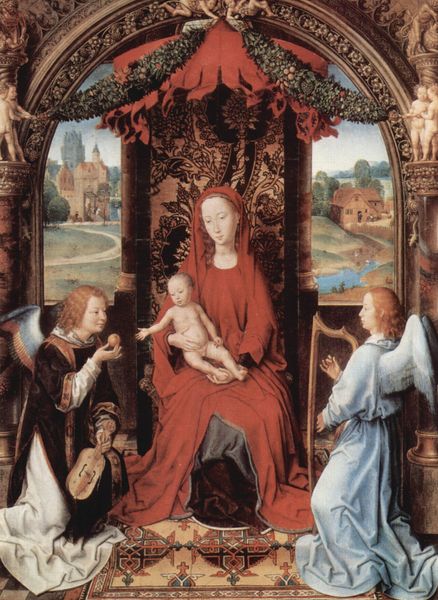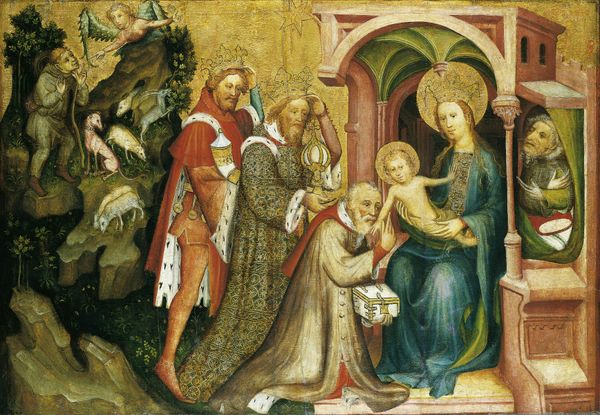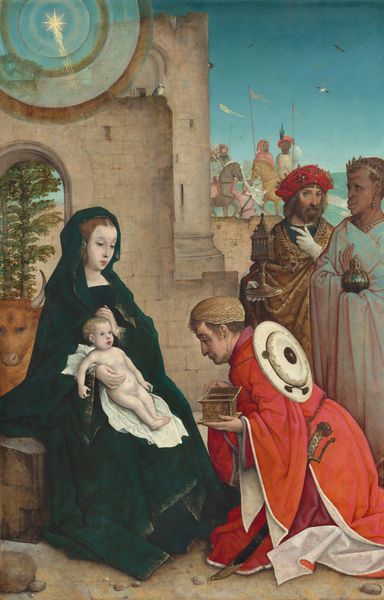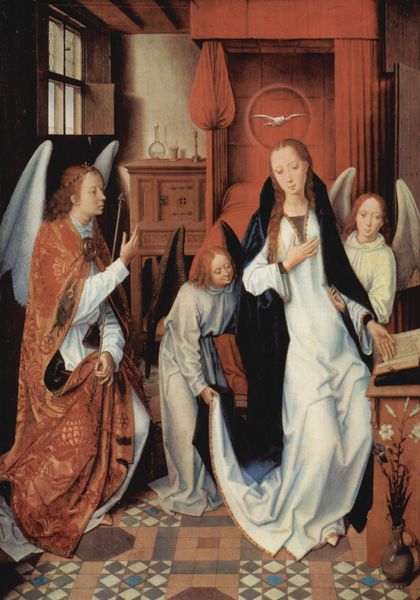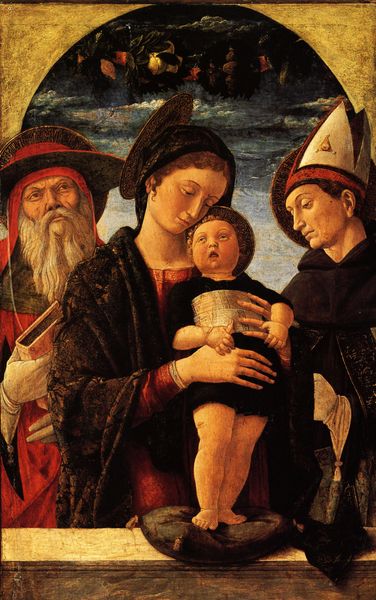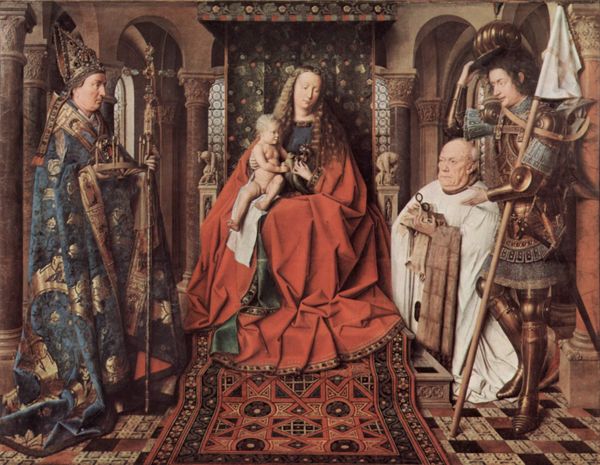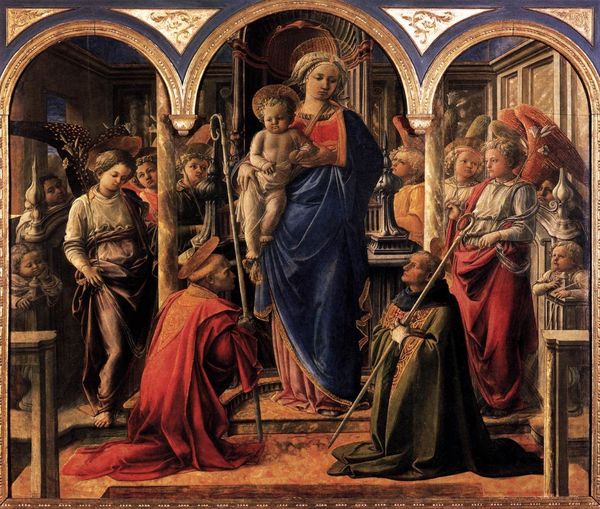
panel, painting, oil-paint, fresco
#
portrait
#
panel
#
allegory
#
painting
#
oil-paint
#
landscape
#
fresco
#
oil painting
#
genre-painting
#
history-painting
#
northern-renaissance
#
academic-art
#
italian-renaissance
#
early-renaissance
#
miniature
#
angel
Copyright: Public domain
Mabuse painted this altarpiece, "Holy Family with St. Catherine and St. Barbara," in oil paint sometime before 1532. The material properties of oil allow for smooth gradations of tone and precise detail. Just look at the rendering of the Virgin's clothing and exposed skin, or the hair on the angels. This reflects the high value placed on skilled handwork during the Renaissance, and also a particular workshop practice. We can imagine apprentices grinding pigments and preparing the wooden panel. The master, in this case Mabuse, would have executed the composition, with other hands assisting in the less critical passages. Oil paint itself was relatively new at this time, and its embrace marks a shift away from earlier methods, like tempera. Oil allowed for a slower, more deliberate way of working, more attuned to subtle effects. The painting embodies Renaissance values about craft, commerce, and how art was made in this period. There are echoes here of broader economic and social structures, which have become enmeshed in the very fabric of the artwork itself.
Comments
No comments
Be the first to comment and join the conversation on the ultimate creative platform.
